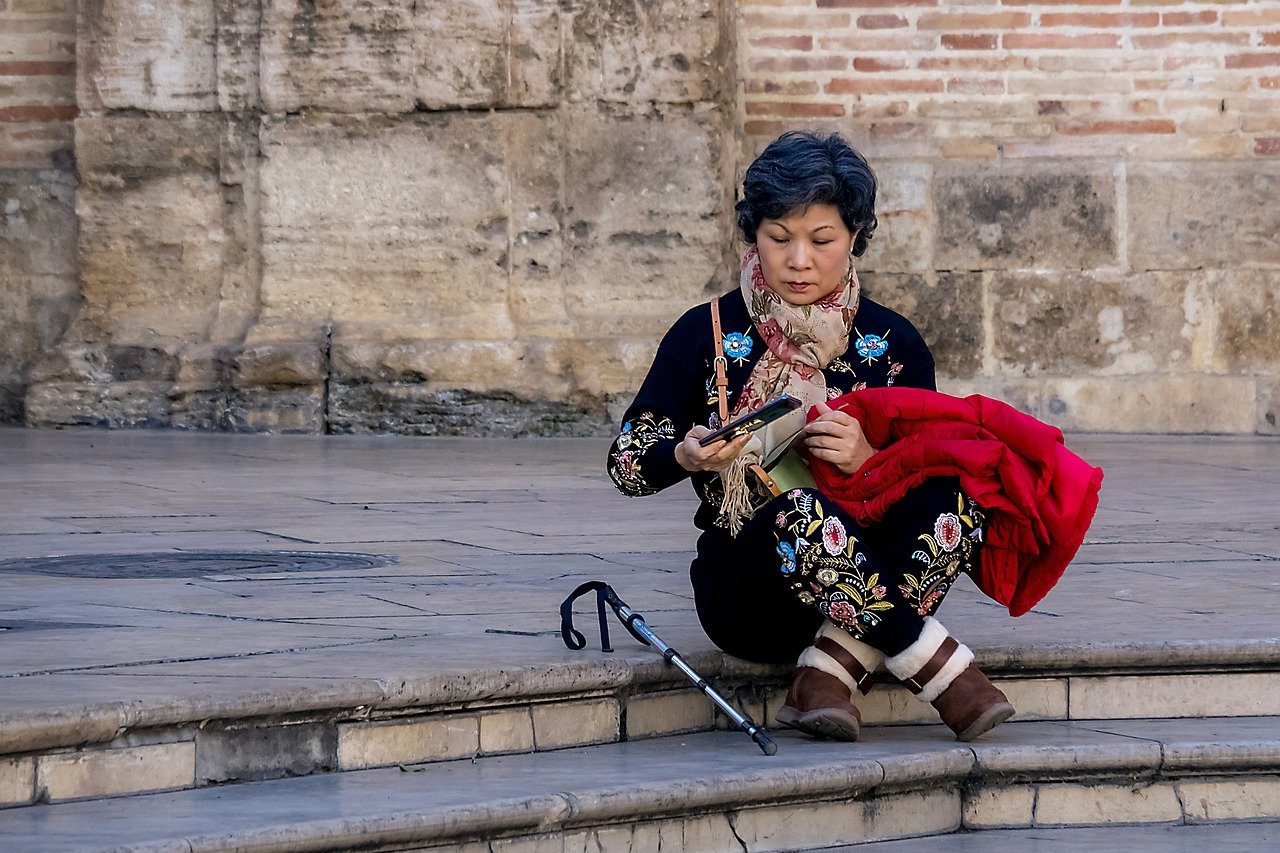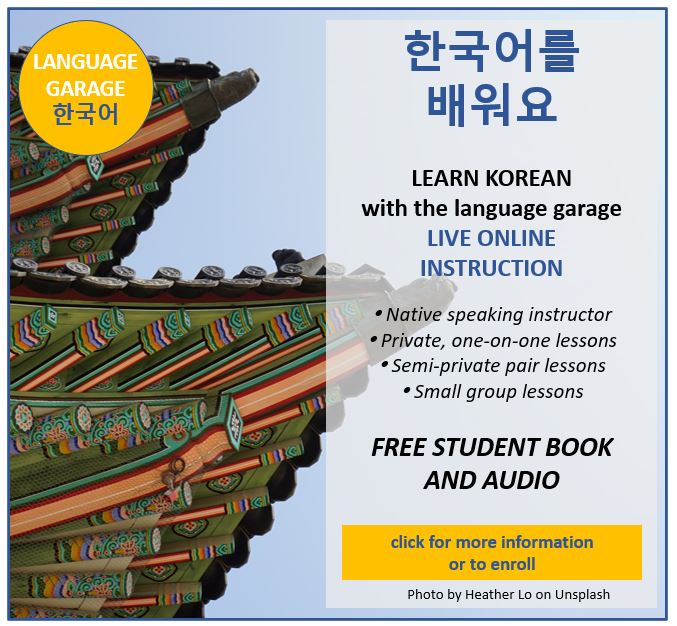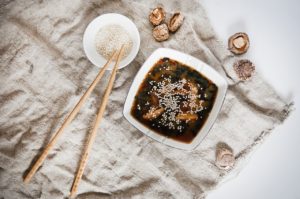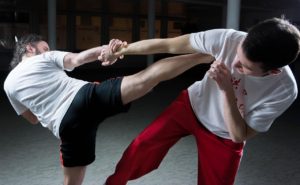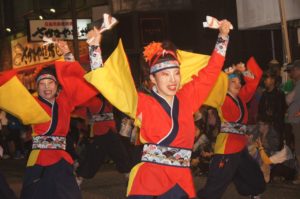Image by Manuel Torres Garcia from Pixabay
In this post we’ll learn basic Korean vocabulary related to the human body.
얼굴 eolgul: The Face
Let’s start at the top, with words related to the head and face: 머리 meori head, 얼굴 eolgul face, 눈 nun eye/ eyes, 눈썹 nunsseop eye brow/ eye brows, 속눈썹 soknunsseop eye lashes, 코 ko nose, 입 ip mouth, 이/이빨 i/ippal tooth/ teeth, 입술 ipsul lip/ lips, 귀 gwi ear/ ears, 볼 bol cheek/ cheeks, 이마 ima forehead, 턱 teok chin, 목 mok neck, 머리털 (털) meoriteol (teol) hair, 콧수염 kossuyeom mustache, 수염 suyeombeard.
- 나는 갈색/파란색/초록색 눈을 가지고 있다.
na-neun galsaek/ paransaek/ choroksaek nuneul gajigo itda.
I have brown/blue/green eyes. - 입을 벌리고 먹지 마세요.
ibeul beolligo meokji maseyo.
Don’t eat with your mouth open! - 나는 이를 닦고 있다.
na-neun i-reul dakkgo itda.
I’m brushing my teeth.
- 그는 귀가 크다.
geu-neun gwi-ga keuda.
He has big ears. - 그녀는 코가 작다.
geunyeo-neun ko-ga jakda.
She has a small nose. - 나는 수염은 없지만, 콧수염은 있어요.
na-neun suyeom-eun eopjiman, kossuyeom-eun isseoyo.
I don’t have a beard, but I have a mustache. - 그녀의 머리는 길어요.
geunyeo-e meori-neun gireoyo.
She has very long hair. - 내 목이 아파요.
nae mogi apayo.
My neck hurts.
팔과 손 palgwa son: Arms and Hands
Now let’s look at vocabulary related to everything from your arms to your finger tips: 팔 pal arm/ arms, 손 son hand/ hands, 손가락 songarak finger/ fingers, 팔꿈치 palkkumchi elbow, 손목/ 팔목 sonmok/ palmok wrist, 손톱 sontop finger nails, 피부 pibu skin.
- 그는 팔이 크다.
geu-neun pari keuda.
He has big arms. - 왼손으로 써요, 아니면 오른손으로 써요?
oenson-euro sseoyo, animyeon oreunson-euro sseoyo?
Do you write with your left hand or your right hand? - 아이들은 항상 손가락을 입에 넣는다.
aideur-eun hangsang songarag-eul ibe neoneunda.
Children always put their fingers in their mouths. - 그는 손톱을 물어뜯는다.
geu-neun sontobeul mureotteutneunda.
He bites his finger nails. - 그녀는 피부가 검다/밝다.
geunyeo-neun pibu-ga geomda/ balkda.
She has dark/light skin. - 아야! 팔꿈치를 다쳤다.
aya! palkkumchi-reul dachyeotda.
Ouch! I hurt my elbow.
허리가 아파요. heoriga apayo. My back hurts.
Now let’s look at: 가슴 gaseum chest, 유방 yubang breast/ breasts, 어깨 eokkae shoulder/ shoulders, 허리 heori waist, 등 deung back, 배 bae belly, 엉덩이 eongdeongi butt.
- 그는 가슴이 근육질이다.
geu-neun gaseumi geunyukjirida.
He has a muscular chest. - 그녀는 내일 유방 검사를 받을 것이다.
geunyeo-neun naeil yubang geomsa-reul badeul geoshida.
She’s getting a breast examination tomorrow. - 그녀는 허리가 아프다.
geunyeo-neun heori-ga apeuda.
She has a sore back. - 그 벨트는 내 허리에 너무 작다.
geu belteu-neun nae heori-e neomu jakda.
That belt is too small for my waist. - 나는 덜 먹어야 해요. 내 배가 점점 커져요!
na-neun deol meogeoya haeyo. nae bae-ga jeomjeom keojyeoyo!
I need to eat less. My belly is getting big! - 그는 어깨가 튼튼하다.
geu-neun eokkae-ga teunteunhada.
He has strong shoulders. - 아야! 엉덩방아를 찧었어!
aya! eongdeongbanga-reul jjiheosseo!
Ouch! I fell on my butt!
긴 다리 gin dari: Long Legs
Now let’s look at vocabulary related to your legs and feet. 다리 dari leg/ legs, 허벅지 heobeokji thigh/ thighs, 엉덩이 eongdeongi hip/ hips, 무릎 mureup knee/ knees, 발 bal foot/ feet, 발목 balmok ankle/ ankles, 발가락 balgarak toe/ toes.
- 그녀는 다리가 길다.
geunyeo-neun dari-ga gilda.
She has long legs. - 내 허벅지는 이 바지에 너무 크다.
nae heobeokji-neun i baji-e neomu keuda.
My thighs are too big for these pants! - 무릎 부상은 고통스럽다.
mureup busang-eun gotongseureopda.
Knee injuries are painful. - 발목을 삐었다.
balmog-eul ppieotda.
I twisted my ankle. - 그녀의 발은 매우 작다.
geunyeo-e bar-eun maeu jakda.
Her feet are very small. - (나는) 발가락을 다쳤다.
(na-neun) balgarag-eul dachyeotda.
I hurt my toe.
내장기관 naejanggigwan: Internal Organs
Now let’s look at some basic vocabulary for internal organs: 심장 shimjang heart, 폐 pye lung/ lungs, 뇌 noe brain, 목 mok throat, 배 bae stomach, 장 jang intestines, 간 gan liver, 신장 shinjang kidney, 피/ 혈액 pi/ hyeoraek blood, 정맥 jeongmaek vein, 동맥 dongmaek artery, 뼈 ppyeo bone, 근육 geunyuk muscle, 신경 shingyeong nerves.
- 심장은 동맥과 정맥을 통해 혈액을 펌프질 한다.
shimjangeun dongmaekgwa jeongmaeg-eul tonghae hyeoraeg-eul peompeujil handa.
The heart pumps blood through arteries and veins. - 우리가 숨쉴 때 우리의 폐는 공기로 가득 차 있다.
uri-ga sumswil ttae uri-e pye-neun gonggiro gadeuk cha itda.
Our lungs fill with air when breathe. - 뇌와 신경은 신경계의 일부이다.
noewa shingyeong-eun shingyeonggye-e ilbuida.
The brain and nerves are part of the nervous system. - 배가 고프다 / 부르다.
bae-ga gopeuda / bureuda.
My stomach is empty/full. - 그녀는 신장 이식이 필요하다.
geunyeo-neun shinjang ishigi piryohada.
She needs a kidney transplant. - 그는 술을 많이 마셔서 간이 건강하지 않다.
geu-neun sureul mani masyeoseo gani geonganghaji anda.
His liver is not healthy because he drinks too much. - 우리의 뼈를 위해 칼슘이 필요하다.
uri-e ppyeo-reul wihae kalsyum-i piryohada.
We need calcium for our bones. - 장은 소화기 계통의 일부이다.
jang-eun sohwagi gyetong-e ilbuida.
The intestines are part of the digestive system. - 달리고 나면 내 다리 근육이 아프다.
dalligo namyeon nae dari geunyugi apeuda.
My leg muscles are sore after I run.
Learn Korean with the Language Garage
Check out our other posts on Korean language, culture, and more. And if you’re looking for convenient and affordable live Korean lessons with a real teacher, check out The Language Garage. Our lessons are given online in a virtual classroom, so it doesn’t matter where you live or work – we can come to you. And we have flexible options, with a free trial so that you can decide if there’s a fit. Check us out!
